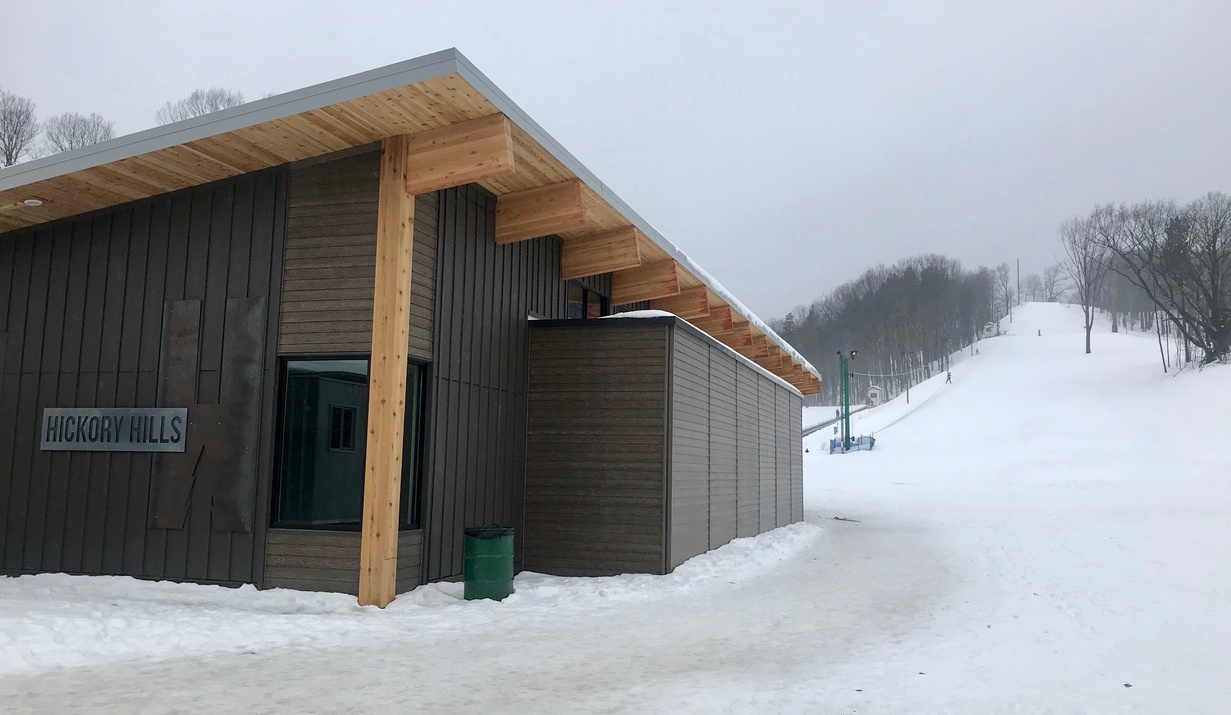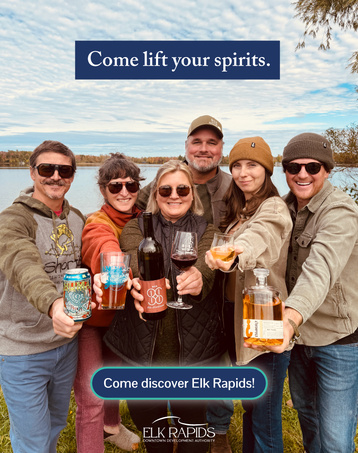
Ballot Renewal Could Fund More City Park Projects
By Beth Milligan | Feb. 25, 2019
Traverse City voters will likely be asked this fall to approve a ballot proposal renewing the Brown Bridge Trust Parks Improvement Fund – a special fund approved by residents in 2014 that uses money from oil and gas royalties to pay for city park projects.
An ad hoc of city commissioners has met since July to study the fund’s possible renewal, reviewing what projects would be covered under another round of funding and potential criteria for distributing funds. In 2014, voters agreed to cap the city’s Brown Bridge Trust Fund – which is funded by revenues from oil and gas exploration rights and royalties at the 1,300-acre Brown Bridge Quiet Area – at $12 million, and to direct any additional dollars that came in over the next five years to a dedicated account for park projects. At the time, city officials estimated the fund would reach $3 million over its five-year lifespan.
But oil prices plummeted shortly thereafter, with the fund’s total capture likely to be closer to $2 million when the cap expires in November, according to City Treasurer Bill Twietmeyer. “It was almost to the date when the ballot measure was approved that the price of oil collapsed,” says Twietmeyer, citing barrel prices in the $40-$60 range over the last five years, compared to a high of $107 in 2014.
Nearly all of the fund’s dollars are now committed to five city park projects, which have claimed a total of $1.83 million. The largest of those outlays was a $1.5 million commitment toward the $4 million overhaul of Hickory Hills Ski Area. The city also committed $300,000 to improvements at the Brown Bridge Quiet Area, with the majority of that funding yet to be spent on a long list of projects ranging from trail improvements to river landing and parking lot renovations to navigational signage. The fund also paid for $49,000 toward renovations at Clancy Park, $30,000 toward Lay Park improvements, and $4,500 to the Wags West dog park. Twietmeyer says it’s possible a small pool of money will be left in the fund at the end of the year, but that he would not recommend the city committing to any other major projects without a ballot renewal. “We can only commit to what we have left in the fund, and that’s it,” he says.
Renewing the ballot proposal would allow a new group of parks to get upgrades over the next five years – and also for commissioners to change the rules for distributing funds. The fund currently has a match requirement that stipulates any funds distributed for projects must have a dollar-for-dollar match of outside funds. The requirement was intended to leverage trust fund dollars for greater impact, essentially doubling the investment into city parks. But Commissioner Michele Howard, who chairs the ad hoc committee studying the fund renewal, told planning commissioners this week that the match requirement has made it difficult for neighborhoods and grassroots groups to obtain funding for projects.
“Smaller parks are having a harder time getting that money,” she said, adding that the ad hoc intends to recommend eliminating a match requirement for those projects to “remove that barrier for some of those smaller parks and neighborhoods” faced with trying to raise matching funds on their own.
Past city leaders including Mayor Michael Estes have also questioned the city’s commitment of large funding sums to only a handful of projects, notably Hickory Hills (pictured). While other commissioners at the time defended the move, citing the willingness of nonprofit Preserve Hickory to raise millions of dollars in outside matching funds to improve a city-owned park, Estes believed the $1.5 million award was not what voters intended. He argued funds instead should be spread across numerous parks in the city. Ad hoc committee members appear to share that approach with a potential ballot renewal: A draft set of recommendations from their January meeting includes creating a list for voters detailing what projects would be funded, a list dominated by smaller neighborhood projects.
The committee suggests first prioritizing a list of projects totaling near $300,000, including $112,000 for renovating Indian Woods Park and then smaller sums – ranging from $10,000 to $58,000 – to make improvements at the Triangle, Boon Street, Ashton, F&M, Arbutus Court, and Highland parks. No outside match would be required for those projects, some of which have been on the city’s capital improvement list for years and keep getting pushed back due to lack of funding or larger parks taking precedence. “It’s been a long time for a lot of these parks that need the work,” Howard said.
The next tier of funding would pay for two larger city projects: potentially $175,000 for a new bath house at West End beach and $40,000 for bathrooms at the volleyball courts, with both of those projects required to obtain outside matching funds to reach their budget totals. The ad hoc suggested any remaining funds could be spent on other city park projects, with matching funds limited to 50 percent of the project cost and not to exceed $250,000. Twietermeyer, going off more conservative oil projections for the next five years, has estimated the fund could bring in $180,000 per year if renewed, or $900,000 total.
Howard told planning commissioners the ad hoc committee will likely finalize its recommendations – including the project list – in the next month. The proposal will then need to be approved by city commissioners in order to appear on the November ballot this fall. Parks and Recreation Superintendent Derek Melville tells The Ticker he’s participated in almost all of the ad hoc meetings and has relayed Parks and Recreation staff and commission input to the committee. He says the group has been “very thoughtful” about a ballot renewal, and that he’s supportive of an approach eliminating match requirements for smaller parks and improving more neighborhood parks.
“This is a Parks and Recreation director’s dream, to have these options available to us,” he says. “Some of the smaller projects are harder to fund for grant writing. Having an option for Brown Bridge Trust Fund (dollars) to kick-start those improvements would make it a shorter turnaround. I understand the intention of the rule the first time around to leverage city dollars, but (eliminating the match) definitely does make it easier for us to plan and come up with a construction game plan.”
Melville says his department would still continue to look for outside funding opportunities whenever possible even if a match requirement was eliminated, in order to ensure the most funding possible was available for parks. While facilities like Hickory Hills attract significant attention and can become major tourism and revenue generators, smaller parks are also an intrinsic part of the city, he says. “They bring the neighborhood together and bring people into those public spaces, where you’re interacting with your neighbors and meeting people you might not normally otherwise,” he says. “I think they go a long way toward creating a sense of community.”
Comment






